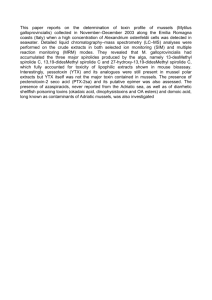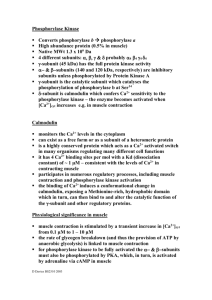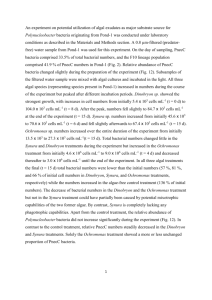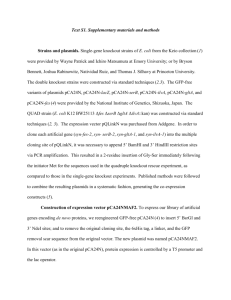Physiological effects of a marine algal toxin on a primary... tales of the unexpected
advertisement
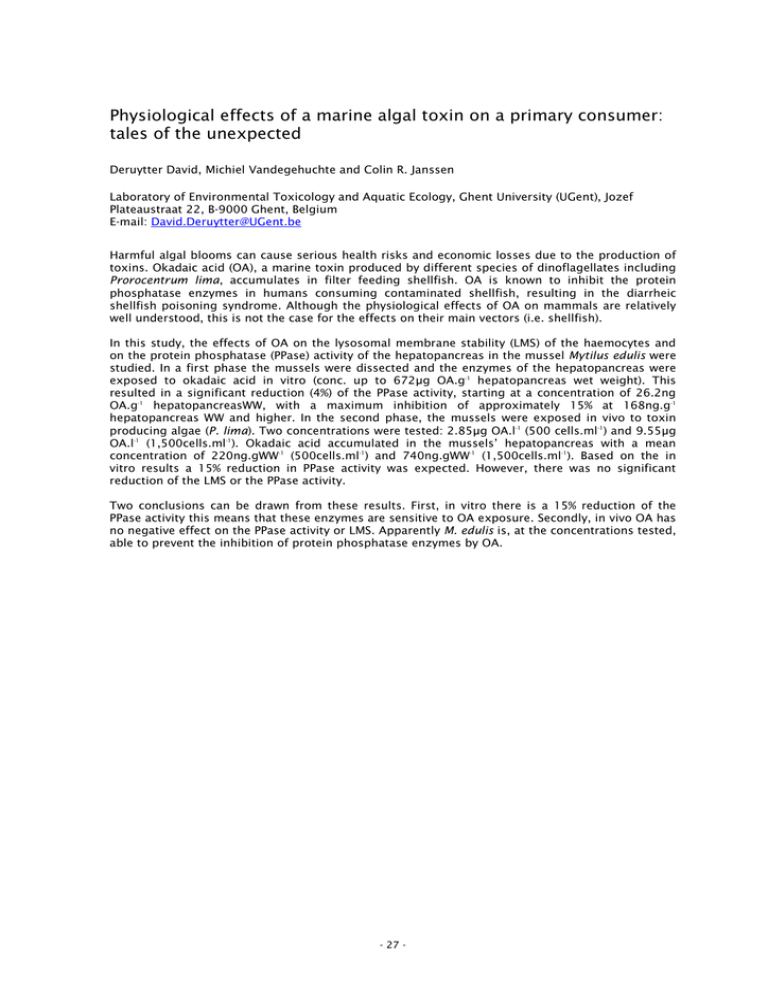
Physiological effects of a marine algal toxin on a primary consumer: tales of the unexpected Deruytter David, Michiel Vandegehuchte and Colin R. Janssen Laboratory of Environmental Toxicology and Aquatic Ecology, Ghent University (UGent), Jozef Plateaustraat 22, B-9000 Ghent, Belgium E-mail: David.Deruytter@UGent.be Harmful algal blooms can cause serious health risks and economic losses due to the production of toxins. Okadaic acid (OA), a marine toxin produced by different species of dinoflagellates including Prorocentrum lima, accumulates in filter feeding shellfish. OA is known to inhibit the protein phosphatase enzymes in humans consuming contaminated shellfish, resulting in the diarrheic shellfish poisoning syndrome. Although the physiological effects of OA on mammals are relatively well understood, this is not the case for the effects on their main vectors (i.e. shellfish). In this study, the effects of OA on the lysosomal membrane stability (LMS) of the haemocytes and on the protein phosphatase (PPase) activity of the hepatopancreas in the mussel Mytilus edulis were studied. In a first phase the mussels were dissected and the enzymes of the hepatopancreas were exposed to okadaic acid in vitro (conc. up to 672μg OA.g-1 hepatopancreas wet weight). This resulted in a significant reduction (4%) of the PPase activity, starting at a concentration of 26.2ng OA.g-1 hepatopancreasWW, with a maximum inhibition of approximately 15% at 168ng.g-1 hepatopancreas WW and higher. In the second phase, the mussels were exposed in vivo to toxin producing algae (P. lima). Two concentrations were tested: 2.85μg OA.l-1 (500 cells.ml-1) and 9.55μg OA.l-1 (1,500cells.ml-1). Okadaic acid accumulated in the mussels’ hepatopancreas with a mean concentration of 220ng.gWW-1 (500cells.ml-1) and 740ng.gWW-1 (1,500cells.ml-1). Based on the in vitro results a 15% reduction in PPase activity was expected. However, there was no significant reduction of the LMS or the PPase activity. Two conclusions can be drawn from these results. First, in vitro there is a 15% reduction of the PPase activity this means that these enzymes are sensitive to OA exposure. Secondly, in vivo OA has no negative effect on the PPase activity or LMS. Apparently M. edulis is, at the concentrations tested, able to prevent the inhibition of protein phosphatase enzymes by OA. - 27 -
